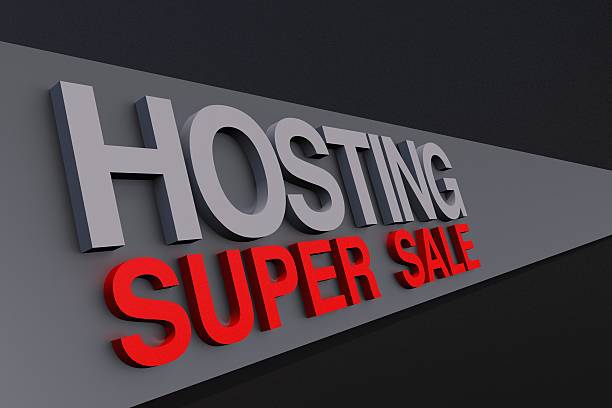When you’re running an eCommerce business , every second of downtime, every slow page load, and every security vulnerability can cost you money — and customer trust.
That’s why many online store owners are asking:
“Is managed hosting worth it for my eCommerce site?”
The short answer: Yes — especially if you value performance, security, and scalability.
But to make an informed decision, you need more than just opinions — you need data-driven insights into the ROI of managed hosting for eCommerce stores.
In this article, we’ll explore:
- What managed hosting really means
- How it compares to shared or self-managed hosting
- Real-world ROI metrics and case studies
- Which platforms benefit most from managed solutions
Let’s break it down.
What Is Managed Hosting?
Managed hosting is a service where your host handles all technical aspects of server management, including:
- Server maintenance
- Security updates
- Performance optimization
- Backups
- Support
This differs from shared hosting , where resources are limited and support is minimal — and from self-hosted VPS/cloud environments , which require technical expertise.
Why It Matters for eCommerce
eCommerce sites demand:
- Fast load times (for conversions)
- High uptime (to avoid lost sales)
- Strong security (to protect sensitive data)
- Scalability (to handle traffic spikes)
Managed hosting is designed with these needs in mind.
Shared vs. Managed Hosting: A Quick Comparison
While shared hosting may seem cheaper upfront, the hidden costs of poor performance and frequent issues can add up quickly — especially for revenue-generating sites.
The Real Cost of Poor Hosting for eCommerce
Before diving into ROI, let’s look at what poor hosting can cost your business:
Lost Sales Due to Slow Load Times
Google found that as page load time goes from 1 to 3 seconds , bounce rate increases by 32% . At 5 seconds , it jumps to 90% .
Revenue Loss During Downtime
If your site is down for just 1 hour during peak hours , you could lose thousands in potential sales.
For example:
- A store doing $5,000/day in sales could lose ~$208 per hour
- Even 3 hours of unplanned downtime = over $600 in lost revenue
Risk of Security Breaches
A single breach can cost:
- Reputational damage
- Legal fines (especially with GDPR or CCPA violations)
- Lost customer trust
- Recovery costs
According to IBM, the average cost of a data breach in 2024 was $4.45 million — though smaller breaches still run into the tens of thousands.
ROI Breakdown: Is Managed Hosting Worth It for eCommerce?
Let’s take a closer look at how managed hosting affects key eCommerce KPIs — and how that translates to real financial returns .
1. Improved Page Speed = Higher Conversion Rates
Case Study: WooCommerce Store on WP Engine
A mid-sized WooCommerce store switched from shared hosting to WP Engine Managed WordPress Hosting .
Results:
- Page load speed improved from 3.8s → 1.2s
- Bounce rate dropped by 27%
- Conversion rate increased by 11%
- Monthly revenue rose by $3,500+
ROI Insight: Faster load times mean fewer users abandoning your cart — and more completed purchases.
2. Near-Perfect Uptime = Fewer Missed Sales
Industry Benchmark:
Top managed hosts offer 99.95% uptime or higher .
Let’s compare two scenarios:
- Shared Hosting : 99.5% uptime = ~43 minutes of downtime per week
- Managed Hosting : 99.99% uptime = ~5 minutes of downtime per month
Over a year, that difference can cost thousands in missed opportunities.
ROI Insight: Every minute your store is offline is a minute you’re not making money. Managed hosting ensures your store is always open for business.
3. Built-In Security = Lower Risk of Breach
Cost of a Minor Security Incident:
Even a small-scale hack can cost:
- Lost customer data
- Website restoration
- Time spent dealing with fallout
- Damage to brand reputation
With managed hosting, providers include:
- Daily backups
- Malware detection
- SSL certificates
- WAF (Web Application Firewall)
ROI Insight: Avoiding one minor security issue can save $5,000+ in recovery costs.
4. Developer Productivity Gains
With managed hosting, developers spend less time troubleshooting servers and more time improving your site.
Example:
A Shopify Plus merchant using Kinsta’s managed cloud hosting reported:
- 40% faster deployment of new features
- Reduced developer overhead by 20 hours/month
- Easier integration with third-party tools
ROI Insight: If your developer earns $50/hour, saving 20 hours/month = $1,000/month saved .
5. Scalability Without Extra Effort
As your store grows, so do your hosting needs.
Managed hosting offers automatic scaling options that adapt to traffic surges — without requiring manual intervention.
Real-World Benefit:
A Magento store using Cloudways managed cloud hosting saw:
- 2x increase in traffic during Black Friday
- No crashes or slowdowns
- 18% increase in revenue compared to previous year
ROI Insight: Being able to scale effortlessly during high-traffic events directly boosts seasonal revenue.
Which eCommerce Platforms Benefit Most From Managed Hosting?
Not all platforms are created equal — here’s how managed hosting impacts popular eCommerce systems:
WooCommerce
WooCommerce runs on WordPress — and WordPress thrives on managed hosting.
Why You Need It:
- Plugins and themes can cause conflicts
- Frequent core updates
- Heavy reliance on caching and CDN
Best Managed Hosts for WooCommerce:
- WP Engine
- Kinsta
- Liquid Web
- Cloudways
Magento / Adobe Commerce
Magento requires advanced hosting due to its complex architecture.
Why You Need Managed Hosting:
- Requires Varnish, Redis, Elasticsearch
- Demands high-performance infrastructure
- Often used for enterprise-level stores
Best Managed Hosts for Magento:
- Nexcess
- A2 Hosting
- AWS Lightsail
- Google Cloud Run
Shopify Plus
Shopify Plus uses Shopify’s native infrastructure , but even then, some managed services enhance performance.
Why You Might Still Use Managed Services:
- Custom domain and DNS management
- Enhanced analytics and monitoring
- Integration with headless storefronts
Recommended Add-Ons:
- Cloudflare for CDN
- Fastly for custom caching
- Third-party tools like MageStack or Rewind Backup
BigCommerce
BigCommerce is another hosted platform, but premium stores often use managed add-ons for performance.
Use Cases for Managed Add-ons:
- Multi-region expansion
- Headless commerce
- Custom app integrations
Recommended Tools:
- BigCommerce Staging Environments
- Bluehost Managed BigCommerce Plans
- Cloudways for hybrid setups
Frequently Asked Questions (FAQ)
Q: Is managed hosting worth the extra cost?
A: Yes — especially if you want reliable uptime, fast speeds, and built-in security. The cost is justified by reduced risk and increased conversions.
Q: What does managed hosting actually do?
A: It handles backend tasks like updates, backups, security patches, and performance tuning — freeing you to focus on growth.
Q: Can I switch to managed hosting later?
A: Absolutely — and many brands do after outgrowing shared plans or experiencing performance issues.
Q: Does managed hosting improve SEO?
A: Yes. Google considers page speed, mobile performance, and security — all areas where managed hosting excels.
Q: Who should consider managed hosting?
A: Any store generating over $2,000/month in revenue , expecting traffic growth, or handling sensitive customer data.
Final Thoughts
When evaluating whether managed hosting is worth it , don’t just look at the monthly cost — look at the total impact on your business .
From faster load times to fewer headaches , better security , and higher conversion rates , managed hosting isn’t just a technical upgrade — it’s a strategic investment .
And when you start seeing the real ROI — in terms of both time saved and revenue gained — the decision becomes clear.
Because in the world of online retail, performance isn’t optional — it’s profit .










